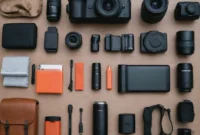Tips for staying safe while traveling are essential for ensuring a worry-free and enjoyable experience. Whether you’re venturing to a bustling metropolis or a remote island paradise, being prepared and taking precautions can make all the difference in your travels.
From planning your trip meticulously to understanding local customs and staying alert to your surroundings, this comprehensive guide provides actionable insights to help you navigate the world with confidence.
This guide delves into various aspects of safe travel, covering everything from pre-trip planning and personal security to staying healthy and communicating effectively. It aims to equip travelers with the knowledge and tools needed to mitigate risks, navigate unexpected situations, and ultimately, maximize their travel experiences.
Staying Healthy While Traveling
Traveling can be an exciting adventure, but it’s crucial to prioritize your health and well-being throughout your journey. Staying healthy while traveling ensures you can fully enjoy your trip and avoid any unnecessary complications.
Vaccinations and Health Precautions
Before embarking on any trip, it’s essential to consult your doctor about necessary vaccinations and health precautions. Some destinations require specific vaccinations to prevent diseases like yellow fever, typhoid, or hepatitis A and B.
Your doctor can advise on the appropriate vaccinations based on your itinerary and any pre-existing health conditions. Additionally, they can recommend necessary medications, such as anti-malaria pills, to protect you from potential health risks.
Staying Hydrated and Eating Healthy
Maintaining hydration is crucial, especially when traveling to hot climates or experiencing long flights. Drink plenty of water throughout your trip, avoiding sugary drinks that can dehydrate you. Prioritize healthy meals and snacks, opting for fruits, vegetables, and lean proteins.
Avoiding Food Poisoning and Common Travel Illnesses
- Food poisoning is a common concern while traveling. To minimize the risk, follow these tips:
- Avoid street food from vendors with questionable hygiene practices.
- Choose restaurants with good reputations and high customer ratings.
- Wash your hands frequently with soap and water, especially before eating.
- Consume only thoroughly cooked food, avoiding raw or undercooked meat and seafood.
- Be cautious about consuming unpasteurized dairy products.
Managing Jet Lag and Sleep
- Jet lag is a common side effect of long-distance travel. To minimize its impact:
- Adjust your sleep schedule gradually in the days leading up to your trip, going to bed and waking up earlier or later, depending on your destination’s time zone.
- Expose yourself to sunlight upon arrival at your destination, which helps reset your internal clock.
- Avoid caffeine and alcohol before bedtime.
- Create a relaxing bedtime routine to promote sleep.
- Consider taking a melatonin supplement to aid in sleep regulation.
Staying Connected and Communicating: Tips For Staying Safe While Traveling
Maintaining reliable communication while traveling is crucial, allowing you to stay in touch with loved ones, access essential information, and navigate unfamiliar environments. With the right tools and strategies, you can stay connected and communicate effectively, enhancing your travel experience and ensuring peace of mind.
Staying Connected Through Mobile Data and Wi-Fi
Staying connected to the internet while traveling can be essential for navigation, communication, and access to information. There are several ways to stay connected:
Mobile Data: Purchasing a local SIM card can provide you with affordable mobile data and call services. This option offers flexibility and convenience, allowing you to stay connected while on the go.
Wi-Fi: Utilizing free Wi-Fi networks available at hotels, cafes, and public spaces can be a cost-effective way to stay connected. However, it’s important to be aware of security risks and use caution when connecting to public networks.
Portable Wi-Fi Hotspots: For travelers who need constant internet access, portable Wi-Fi hotspots can provide a reliable and secure connection. These devices create a private Wi-Fi network, allowing multiple devices to connect simultaneously.
Communicating Effectively with Locals and Other Travelers
Effective communication is essential for navigating unfamiliar environments and interacting with locals. Here are some tips for fostering positive interactions:
Learn Basic Phrases: Familiarizing yourself with basic greetings, thank yous, and common phrases in the local language can go a long way in showing respect and building rapport.
Use Nonverbal Communication: Body language, facial expressions, and gestures can be powerful tools for communication, even when language barriers exist.
Be Patient and Understanding: Language barriers and cultural differences can sometimes lead to misunderstandings. Be patient, understanding, and willing to communicate in creative ways.
Use Translation Apps: Language translation apps can be invaluable tools for bridging language gaps. Apps like Google Translate and Microsoft Translator can translate text and speech in real time, facilitating communication with locals.
Using Language Translation Apps and Other Helpful Tools
Language translation apps are essential for travelers who want to communicate effectively with locals. These apps can translate text and speech in real time, bridging language barriers and facilitating smooth interactions.
- Google Translate: This popular app offers comprehensive translation capabilities, supporting a wide range of languages. It can translate text, speech, and even images, making it a versatile tool for travelers.
- Microsoft Translator: Another powerful translation app, Microsoft Translator provides similar features to Google Translate, including real-time conversation translation. It also offers offline translation capabilities, which can be helpful in areas with limited internet access.
- Other Helpful Tools: Besides translation apps, other tools can enhance communication while traveling. These include:
- Phrasebooks: These books contain lists of common phrases and vocabulary, providing a quick reference for travelers.
- Dictionary Apps: For more in-depth language learning, dictionary apps can provide definitions, pronunciations, and examples of usage.
Emergency Preparedness

While traveling, it’s essential to be prepared for unexpected situations. Having a plan in place can help you navigate emergencies effectively and ensure your safety and well-being.
Staying Informed About Potential Threats and Risks
Before embarking on your journey, it’s crucial to stay informed about potential threats and risks in your destination.
Check travel advisories and warnings issued by your government or relevant organizations. The U.S. Department of State’s Bureau of Consular Affairs, for instance, provides comprehensive travel advisories and warnings for various countries, including safety and security information.
Familiarize yourself with local laws and customs. This includes understanding cultural norms, legal regulations, and potential risks associated with certain activities.
Research potential hazards, such as natural disasters, political instability, or crime rates. Understanding these risks can help you make informed decisions and take appropriate precautions.
Creating an Emergency Kit
Having an emergency kit can be a lifesaver in unexpected situations.
Include essential items such as a first-aid kit, medications, water purification tablets, a flashlight, a whistle, and a multi-tool.
Pack copies of important documents, including your passport, visa, travel insurance policy, and credit card information.
Consider adding items like a portable charger, a map, and a compass for navigation purposes.
Knowing What to Do in a Crisis
In a crisis, it’s essential to stay calm and act decisively.
Follow instructions from local authorities and emergency services. They are best equipped to handle the situation and provide guidance.
Communicate your location and situation to family and friends. This can help them stay informed and provide support.
Take necessary precautions to protect yourself and your belongings. This might involve seeking shelter, avoiding dangerous areas, or contacting your embassy or consulate for assistance.
Contacting Local Authorities and Emergency Services, Tips for staying safe while traveling
Knowing how to contact local authorities and emergency services in case of an emergency is vital.
Keep emergency numbers readily accessible. This includes the local police, fire department, ambulance service, and your embassy or consulate’s emergency contact information.
Learn basic phrases in the local language to communicate with emergency services.
If you’re in a situation where you can’t speak the local language, use gestures and visual aids to communicate your needs.
Closing Notes
Traveling should be an adventure, not a source of stress. By embracing these tips and prioritizing safety, you can embark on your journey with peace of mind, knowing you have the knowledge and preparedness to handle any challenges that may arise.
Remember, staying safe while traveling is not about being overly cautious; it’s about being informed and proactive, allowing you to embrace the world with confidence and make the most of your experiences.
Questions and Answers
What are some essential travel documents to bring?
Essential travel documents include your passport, visa (if required), flight tickets, travel insurance information, and any necessary vaccination certificates.
How can I avoid pickpockets while traveling?
Be mindful of your surroundings, keep valuables close to your body, and avoid displaying large amounts of cash or expensive jewelry. Use secure bags with zippers and consider using a money belt or hidden pocket.
What should I do if I get lost while traveling?
Stay calm and try to retrace your steps. If possible, seek assistance from locals or fellow travelers. Have a map or use a GPS app to help you find your way back.





